The Best Fuel Injector Cleaners

Over time and miles, your car might start to slow down. It might not accelerate as quickly as it once did; the engine may not run as smoothly as you remember, or the fuel economy may dip—but everything else may work fine. If that happens, it might be time to treat your engine’s fuel system to a cleaning with the best fuel injector cleaner you can use. Fuel injection systems are high-precision electro-mechanical systems with tight tolerances that operate under very high pressures. All the fuel has to squeeze out of injectors with tiny outlets in ultra-precise amounts. Or performance suffers.
Even if you are careful about using the recommended and high-quality fuel for your engine, contaminants can still make their way into your fuel system from the gas station’s underground tanks. Short trips and stop-and-go driving can also provide an opportunity for particulates to settle out and for varnish to form, decreasing your engine’s efficiency—and power.
Taking your car to a mechanic for fuel injector cleaning will involve removing the injectors from the engine and performing the service on a bench with special machinery. It’s an expensive process, so it’s worth trying it yourself first. Fuel injector cleaners are probably the easiest engine additive to use, and drivers can do it even if they have no tools or a garage. These products allow you to simply apply a fuel injector additive to your fuel tank, cleaning out the inner workings of your engine’s fuel system and reducing the chance that you’ll need to perform costly maintenance work sometime down the road.
Drivers looking for fuel injector cleaners are spoiled by a huge amount of options, but we’ve made a list of the best fuel injector cleaners on the market today to make your buying decision easier. These are among the most popular and highest-rated fuel injector cleaners, so you can buy these products knowing that they have been tested and approved by other consumers just like you.
For more information on the best fuel injector cleaners, refer to our table of contents.
Table of contents
- 1. Editor's Pick: Chevron Techron Concentrate Plus Fuel System Cleaner
- 2. Red Line Complete SI-1 Fuel System Cleaner (60103)
- 3. Royal Purple Max-Clean Fuel System Cleaner and Stabilizer (11722)
- 4. Liqui Moly Jectron Fuel Injection Cleaner
- 5. Sea Foam Motor Treatment (SF-16)
- 6. Lucas Oil Deep Clean Fuel System Cleaner (10512)
- 7. STP Ultra 5-in-1 Fuel System Cleaner and Stabilizer
- Everything You Need to Know About Fuel Injector Cleaners
- How Do Fuel Injectors Work?
- How Do Fuel Injectors Clog Up?
- What Does a Fuel Injector Cleaner Do?
- How Do Fuel Injector Cleaners Work?
- What To Look For in a Fuel Injector Cleaner
- When Do I Use Fuel Injector Cleaner?
- How Often Should I Use Fuel Injector Cleaner?
- How DoI Know If My Engine Needs a Fuel Injector Cleaner?
- What Can I Expect After a Fuel Injector Cleaner Treatment?
- What Are the Types of Fuel Injector Cleaners?
- How to Use Fuel Injector Cleaners
- Recent Updates:
- Q & A
1. Editor's Pick: Chevron Techron Concentrate Plus Fuel System Cleaner
This is one of the most popular fuel injector cleaners available in today's market and it comes from a well-known brand. In fact, it's often recommended by automakers as a solution for cleaning the fuel injection system. It works on lighter vehicles of all types, carbureted or fuel injected engines. It will also work on your two-stroke motorcycles, just be sure to put lower amounts in the tank—as much as it says on the instructions on the bottle.
According to the company, it will clean and restore the entire fuel system, including the fuel injectors, intake valves, and combustion chambers. Recommended usage is every 3,000 miles for cars and trucks, or right before an oil change. For engines that don’t have a counter, like your lawnmower, use it as needed.
2. VP Racing Fuels Madditive Fuel System Cleaner
VP Racing is best known for its racing fuels. The company blends leaded and unleaded gasoline and other fuels that power winners in the NHRA, at Pike's Peak, and in top drift, rally, and desert racing events. The company even makes fuel to power racing aircraft.
So VP knows about fuel systems and has put that 50-plus years of knowledge into its Fuel System Cleaner. The premium gas additive uses an advanced PEA dissolvent that breaks down carbon deposits and impurities. After they're dissolved, VP Racing Fuel System Treatment's detergents clean your entire fuel system as well as your piston tops, rings, and valves.
One bottle treats up to 20 gallons of fuel and VP Racing says it works for 5,000 miles. VP claims it will reduce vehicle emissions, add lubrication to your fuel system, and help restore fuel economy.
3. Red Line Complete SI-1 Fuel System Cleaner (60103)
Most of the fuel injector cleaners have the same basic chemicals, but Red Line has patented a formula that puts it in front of the competitors. Thanks to that, the Complete SI-1 Fuel Cleaner not only cleans your injectors and the carbon build up in the engine, but also lubricates the upper part of the cylinder and reduces the need for high octane gasoline.
In other words, it will not only clean your engine, but it will make sure that it’s lubricated properly and that it works fine with lower quality gasoline. The company recommends using one bottle per tank of gas. It can be used on all kinds of vehicles, including cars, trucks, off-road vehicles, motorcycles, marine engines, etc.
You can also stock up if you plan on using this on a regular basis, as it's available in a two-pack, six-pack, and by the dozen.
4. Royal Purple Max-Clean Fuel System Cleaner and Stabilizer (11722)
Another well-known brand in the automotive industry, Royal Purple offers this Max-Clean Fuel System Cleaner and Stabilizer. It's a bit more expensive compared to other recommendations on our list, but the price is worth it if you want a clean engine. It will reduce the emissions of your vehicle, helping it run smoothly and even improve the power and mileage.
This recommendation also stabilizes the fuel when you don’t drive your car for longer periods of time. One can of this fuel injector cleaner is to be used on 20 gallons of fuel. It works on any four- or two-stroke vehicle with a gasoline or diesel engine. The company claims you can expect to see an average fuel economy improvement of 3.2 percent and even a horsepower gain of 2.6 percent on average.
5. Liqui Moly Jectron Fuel Injection Cleaner
Liqui Moly makes a powerful additive for cleaning fuel injectors and carbon build up, especially for cars with older engines. It’s one of the fastest solutions on the market, with improvements being seen after only 1,000 miles or one tank of fuel. And since it comes from Liqui Moly, it was tested by the strict TUV (Technical Inspection Association) in Germany, so it’s one of the safest fuel injector cleaner products.
The company says that it will also not damage oxygen sensors or catalytic converters, and one bottle is good for one tank of fuel. One downside is that it can only be used on gasoline engines. Liqui Moly claims you'll get smoother idling, better throttle response, and cleaner combustion by using its Jectron Fuel Injection Cleaner. It'll also work to help eliminate starting problems, hesitation and stalling.
6. Sea Foam Motor Treatment (SF-16)
Another popular option, Sea Foam's Motor Treatment can be used on a variety of different engine types, including gasoline and diesel motors. Designed to clean away very heavy carbon build ups, it will also clean your fuel system and lubricate it so it will last longer. Ideal for older engines with a lot of deposits inside, you can also use this in conjunction with other Sea Foam products to eliminate all those deposits from your engine.
The company says this motor treatment can even work to stabilize stored fuel for up to two years by resisting evaporation, preserving ignition vapors, and preventing the formation of gum and varnish. This solution only contains petroleum-based ingredients, which means no harsh detergents or abrasive chemicals that could potentially harm your engine. We.ve seen it do a great job with noisy lifters under the right conditions.
7. Lucas Oil Deep Clean Fuel System Cleaner (10512)
If you're looking for one of the best treatments for carbon build up, consider Lucas Oil's Deep Clean Fuel System Cleaner. You've likely heard of the brand if you've walked the aisles of your local auto parts store, as it is one of t he most well-known brands when it comes to automotive lubrication products. It’s very successful at treating every metallic surface inside the engine and cleaning it of deposits, as well as treating your fuel system.
As a result, using this can improve the performance and fuel economy of your car, as well as reducing NOx emissions. If you're experiencing knocking and pinging with your engine, this is also worth a shot to try to eliminate those issues. The only major drawback with this solution is that it can only be used in gasoline engines, but it's available in bulk packs for convenience.
8. STP Ultra 5-in-1 Fuel System Cleaner and Stabilizer
Another brand with a great reputation in the industry, STP offers this advanced synthetic fuel system cleaner and stabilizer. Not only will it clean your fuel system, it'll also work to stabilize the fuel and prevent rust inside its metallic components. The company says this formula boasts three times the amount of detergents compared to other products, helping it remove 61 percent of intake valve deposits and restore the injector to 95 percent of its original performance.
Use this on a full tank of fuel (around 20 gallons) and you should experience some noticeable results, including lower emissions and better fuel economy. It'll also work to reduce friction by lubricating engine parts, potentially improving performance. It's compatible with cap-less gas systems and is safe to use on modern gasoline engines with turbochargers, direct injection, and even hybrid vehicles.
Everything You Need to Know About Fuel Injector Cleaners
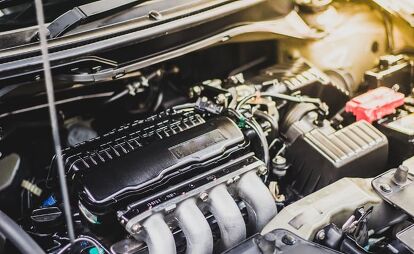
One of the most common problems with any fuel injected engine is that the injectors that bring the fuel to the combustion chamber can get clogged up. If you think about it, these are one of the vital parts of the engine—no fuel in the chamber means no combustion, and consequently a car that will lose power, have worse fuel economy, and increased emissions.
If you’ve never experienced your engine losing power even if it was regularly maintained, you are one of the lucky few. Clogged up fuel injectors are so common that every auto parts shop has dozens of different fuel injector cleaners that purportedly can clean your entire fuel system and make your engine work like new again. That is, if it doesn’t have other problems already.
Here, we’ll talk about everything you need to know about fuel injector cleaners and we try to answer every question you have, like why they are needed in the first place, how to use them, should you use them yourself, or go to a mechanic, and so on.
How Do Fuel Injectors Work?
Fuel injectors are used to introduce fuel to the combustion chamber, where it is mixed with air and then combusts to create power. The injector receives the fuel from a high-pressure fuel pump and thanks to a very small nozzle, atomizes the fuel so it can mix with air quickly.
It's a little like an aerosol spray can: A bottle already pressure with a small nozzle that atomizes the liquid into very small particles. The fuel injector works similarly, with higher much pressures, smaller nozzles, and precise metering to create a fuel vapor that combusts predicably, efficiently, and cleanly. Newer injectors for direct injection engines even have several nozzles on the tip to help for a better air-fuel mixture.
Since carburetors were phased our around 1980, every new internal combustion engine gets the fuel into the chamber with injectors, including diesel engines (don't use a gas engine-only injector cleaner in a diesel, though). The process is controlled by the ECU (engine control unit), so the injector will always supply the fuel right when the engine needs it. Timing is very important, as injecting fuel too early or too late can will the engine not to work as expected or even damage it.
Fuel injectors are very delicate parts, with very small canals and constantly under high pressure, and need almost ideal working conditions, like extremely clean fuel and in the case of direct injection systems, a clean nozzle tip and a clean combustion chamber.
How Do Fuel Injectors Clog Up?
The gasoline and diesel fuels that we put in our cars are never as clean as it should be. In addition to fine particulate matter, the fuel that we get today has small amounts of water and some octane-boosting ingredients.
All of these things can have detrimental effects on the fuel injectors, but the number-one enemy is definitely carbon buildup. This is something that happens to every engine with time—during the process of combustion, the majority of the carbon leaves the engine through the exhaust system, but some of it stays in the combustion chamber and in time it can block the passages of fuel and air-fuel mixture. Add to that the possibility of the injector rusting from the water in the fuel, and some byproducts from the ethanol, and your car can start losing power and consume more fuel.
This is why keeping your fuel injectors clean is important. You not only lose power, but your fuel economy can fall off too.
What Does a Fuel Injector Cleaner Do?
Fuel injector cleaners are additives that are meant to dissolve those deposits in the injector, as well as in the combustion chamber, and help your engine work in optimal conditions with the right air-fuel mixture. Think of them as detergents for your fuel system.
These cleaners can clean the inside of your injector, as well the carbon buildup in the combustion chamber, behind the intake valves, and around the spark plugs. All of them have active ingredients that help dissolve the deposits into much smaller pieces, which are either burned or ejected through the exhaust system.
How Do Fuel Injector Cleaners Work?
Fuel injector cleaners are a mixture of complex chemicals, most of them solvents that can easily clean deposits. The main cleansing agent of these additives is a chemical called PEA or polyetheramine (see the next section), which is a nitrogen-based detergent that is great at dissolving carbon deposits. PEA is very resistant to high temperatures, which makes it great for cleaning fuel injectors, as well as dissolving deposits in the combustion chamber, where the temperature can go up to 1200°F.
Some cleaners contain other chemicals that the manufacturers claim it makes them superior to others, but scientific studies have shown that polyetheramine is best at cleaning carbon build up, and you should always look for additives that contain this chemical.
What To Look For in a Fuel Injector Cleaner
Always look for a fuel injection cleaner that contains the detergent Polyetheramine (PEA), as it is the strongest cleaning agent. Some of the cleaners will have Polyisobutene (PIB), that helps remove water from the fuel and Polyisobutylene amine (PIBA), which is also a cleaning agent, but not as strong as Polyetheramine. Older fuel injector cleaners even have alcohol in them for water removal, but they can damage parts of the fuel system and you should avoid them.
When Do I Use Fuel Injector Cleaner?
These cleaners are some of the easiest to use engine additives on the market. They should be poured into an almost empty tank of fuel just before you fill up at the gas station, and then you should drive until the tank is almost empty, so it doesn't get diluted by fresh gas.
This means that they don’t work right away—you need to drive several hundred miles before you can feel the difference. Be sure to read the instructions: Some formulas are concentrated, so you'll need to measure it out, while others just use the whole bottle.
If your car was not cleaned for a long time and it has a lot of carbon deposits, one full tank of gasoline or diesel and a bottle of fuel injector cleaner might not be enough to effectively clean the injectors and the combustion chamber. When that’s the case, simply put another bottle of additive in an almost empty tank of gas and empty it by driving.
How Often Should I Use Fuel Injector Cleaner?
If your engine is running fine, never. It's a waste of money. But if you have problems, or as your car starts to age, some mechanics will advise you to use a fuel injector cleaner every year, or every 12,000 to 15,000 miles, before the oil change. Additive manufacturers will even instruct you to use it every 3,000 to 5,000 miles. These are not rules. We would advise against using these additives on new engines, as your engine may not be fully broken in for up to 10,000 miles, and the only thing you should be putting through a new engine is high-quality gasoline.
When to use fuel injector cleanerOur advice is to use fuel injector cleaners on older engines before an oil change, as well as engines that are often used in cold climate and driven on shorter distances or in congested stop and go traffic. In these situations, carbon builds up much faster and using a fuel injector cleaner will help in maintaining the optimal working conditions of your engine.
Using a higher quality detergent gasoline or diesel fuel will also help against clogging up of the injectors and less carbon build up, so try to stick with name brands, and use the recommended octane. Many new high-performance and turbo engines require at least 91 octane, and using a lower blend is a recipe ending up with engine deposits.
How DoI Know If My Engine Needs a Fuel Injector Cleaner?
Engine with a lot of carbon build up and clogged injectors will start losing power, begin to consume more fuel, rattle at idle and have ignition problems. However, all those symptoms can be due to other parts of the engine, so be sure to always maintain your car routinely by regular oil, oil filter, and air filter changes; as well as spark plugs in gasoline engines. Vacuum leaks, short circuits, and weak charging can also affect performance, so if you're in doubt, hook up an OBD2 diagnostic scanner to try to narrow it down.
What Can I Expect After a Fuel Injector Cleaner Treatment?
You can expect several improvements on your engine after treating it with a fuel engine cleaner, but these results won't happen immediately—you often have to drive a few hundred miles for it to work. Improvements include regaining power and enhanced throttle response, better fuel economy and fewer vibrations at idle. For best results though, it’s best that you check your spark plugs and air filter as well, as they can also help your engine run better.
What Are the Types of Fuel Injector Cleaners?
There are several types of fuel injector cleaners out there. The basic ones will only clean the fuel system and the carbon build up inside the combustion chamber. However, there are cleaners that will also stabilize the fuel or even boost the octane value to help the engine run smoothly even on lower quality gasoline.
Some of them will even have lubricants that can help maintaining the fuel system of your car for longer periods of time. You can recognize all these products right away: They will either have “3 in 1” or even “5 in 1” description on the package.
How to Use Fuel Injector Cleaners

Keeping your fuel injectors clean play a huge role in how efficiently your car's engine is running. Using fuel injector cleaners is an easy way to make sure your car is operating at its peak and also getting better fuel efficiency.
Using fuel injector cleaners is a pretty simple task and anyone can do it—there is no need to go to a mechanic. Before you begin, it's important to use a fuel injector cleaner on a close to empty gas tank just before you're about to fill up at a gas station.
- Buy the right fuel injector cleaner for your engineAll fuel injector cleaners are not created equally. Most of them will work on any type of fuel, but there are some that will work only on gasoline, diesel, or ethanol blends. Also, you should check if it works with turbo engines, if you have one, or with catalytic converters. Read the instructions on every package thoroughly, so you can be sure that you’ll buy the right one for your engine type.
- Check the instructions for the right amount of fuel injector cleaner you needThe instructions will help with measuring the right quantity you need for the size of your tank as well. Almost always, one bottle of a fuel injector cleaner is enough for one tank, but if you have larger or smaller than the average fuel tank, you may need to put more or less of the additive.
- Be sure that the fuel level in your car is lowFuel injector cleaners can work even if you put them inside a full tank of fuel, but it’s best to put them inside an empty tank, so they will mix with the fuel better.
- Remove the fuel capRemove the fuel cap, as every cleaner should be mixed with gas.
- Pour the fuel injector cleaner into the fuel tankOpen the bottle and pour the fuel injector cleaner. Use the funnel if one is provided with the bottle so nothing spills out. Some bottles have additional measuring devices on them (attached to the bottle). Be sure to fill them with the right amount of cleaner before pouring it into the tank.
- Refill your tank with fuelAfter pouring the fuel injector cleaner, you should refill your car with gasoline, diesel or any type of fuel that your car uses. That’s why it’s ideal you are at a gas station while doing these steps. Dispose of the empty bottle responsibly.
- Empty the fuel tank by driving your car. This is self-explanatory, but there are some things to consider if you want the best cleaning.
- It’s best to drive your car at the highway or at higher speeds. In doing this, the pressure in the fuel system will be higher, which can help the cleaner remove the deposits easily. This will also help in cleaning the carbon deposits inside the combustion chamber and eject them through the exhaust. Use higher engine rpms. You can do this even when the car is stationary, or when driving. In other words, don’t hesitate to press that gas pedal, as it will help in better cleaning.
- Repeat steps 1 to 7 if neededOne bottle of fuel injector cleaner usually does the trick if your engine has deposits inside or some of the injectors is stuck. However, if the engine is still not working as normal, you can repeat steps 1 to 7. These additives don’t have adverse effects on the engine and using them more than one time is not a problem.
Recent Updates:
July 14, 2023: Removed Gumout from recommendations, added VP Racing
January 13, 2023: Updated product links.
January 3, 2023: Removed promoted product recommendation.
August 23, 2022: Removed STA-BIL 360 from recommendations.
November 15, 2021: Removed unavailable Marvel Mystery Oil product. Updated links.
October 13, 2021: Added additional product links.
August 20, 2021: Promoted Product added (Hot Shot's Secret Gasoline Extreme)
March 19, 2021: Updated the description for many of the product recommendations for clarity, updated images to reflect packaging changes on several products.
We are committed to finding, researching, and recommending the best products. We earn commissions from purchases you make using the retail links in our product reviews. Learn more about how this works.
Q & A
Should I use fuel injector cleaners on a carbureted engine?
Carburetors can also get clogged up, even though not as quickly as injectors. That said, a fuel injector cleaner can be used not only to clean up the carburetor but also to clean carbon deposits inside the engine. We definitely recommend using one if you have an older engine.
Can I use the same fuel injector cleaner on a gasoline and diesel engine?
You should always buy fuel injector cleaners that are specified for the fuel you use in your vehicle. Both of them have similar cleaning characteristics, but they also have some additional additives that will only help the type of fuel they’re intended for. That said, most of the products can work on all type of fuels—gasoline, diesel, biodiesel, or even Ethanol blends.
Can these additives repair a bad fuel injector?
If your mechanic told you that you have a bad fuel injector, these cleaners won’t help. You should change the injector with a new one or if it’s possible, repair it at a professional.
Should I go to a professional to clean my injectors?
In most circumstances, only pouring a fuel injection additive in your gas tank can help your car drive better. However, if the injectors in your engine are very clogged up and there is a lot of carbon build up, you might want to visit a mechanic. They have additional cleaning techniques which require removing the injector and cleaning it, as well as opening the engine to physically and chemically remove the carbon build up. Even though there are some kits online that you can use to do these things yourself, we suggest against doing it, as modern engines have a lot of sensitive parts that you must remove before cleaning.
Can a fuel injector cleaner damage my engine?
All fuel additives from reputable manufacturers are tested on a variety of engines and fuel types, so it is highly unlikely that they will damage your engine in one way or another.

Sam McEachern holds a diploma in journalism from St. Clair College in Windsor, Ontario, and has been covering the automotive industry for over 5 years. He conducts reviews and writes AutoGuide's news content. He's a die-hard motorsports fan with a passion for performance cars of all sorts.
More by Sam McEachern



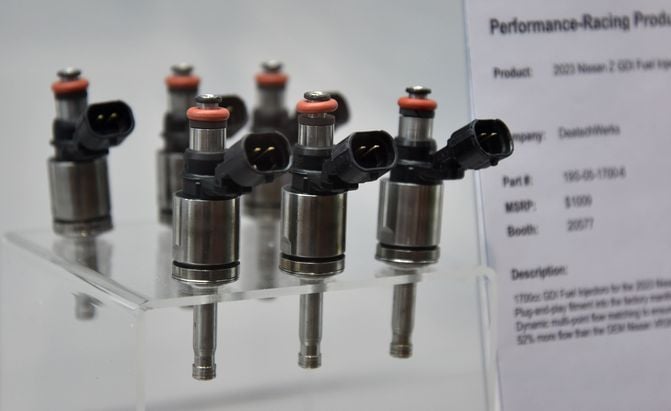


















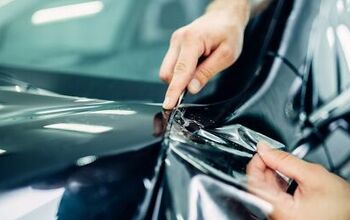


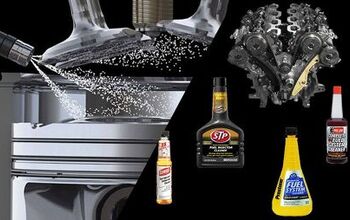
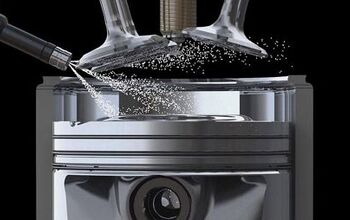
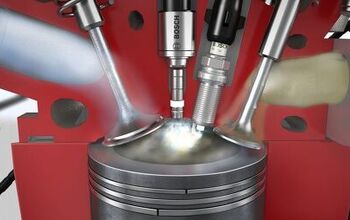
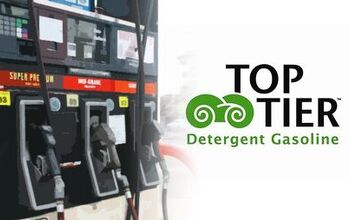
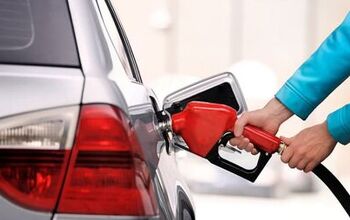





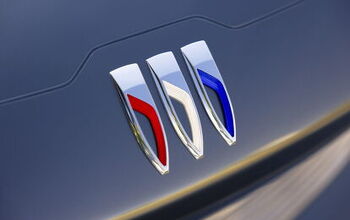




Comments
Join the conversation
Very interesting article . Thanks . Wondering if turbo cleaners are effective or are they a waste of money .
Barry, I notice Doctor Injector FSM product is not on your list. Are you failure, is it a good product?